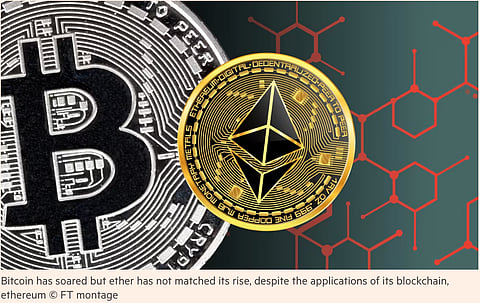Global Investing
From the FT: Bitcoin leaves the rest of the crypto market behind
This may turn out to be the year when Bitcoin maximalists prove their point as the benchmark crypto put distance between itself and others.
By Scott Chipolina for The Financial Times
One common — and not always unfair — criticism made by crypto enthusiasts is that the wider world conflates bitcoin and cryptocurrencies.
If the subject comes up over Christmas, chances are family and friends will use the two interchangeably. In their minds bitcoin IS the crypto market. Yet people working around it, or even have more than a passing interest, know there is much more going on.
___STEADY_PAYWALL___

